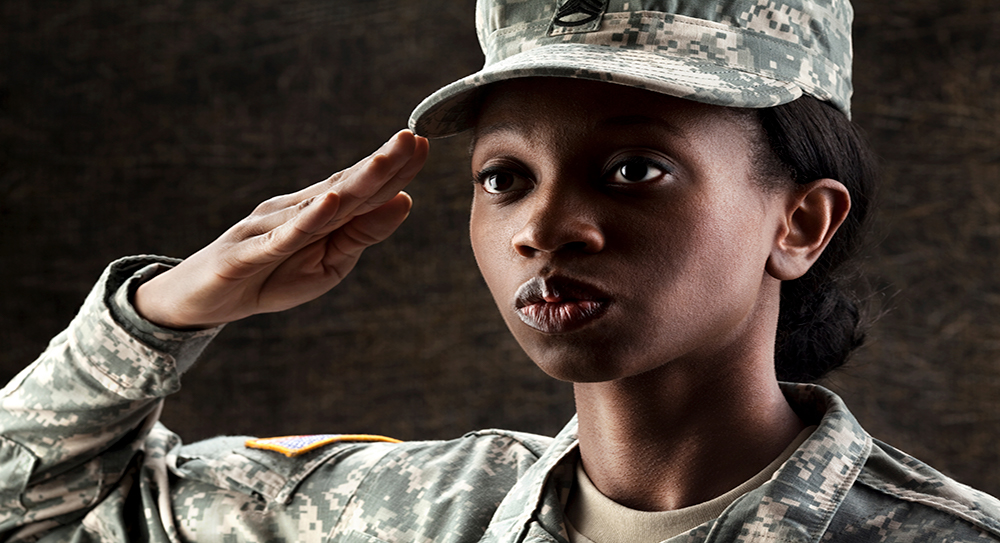Veterans Day is a day we set aside to honor and celebrate the men and women who have served in the United States Armed Forces, selflessly protecting us and our country. We salute and honor all of you.
Today, we want to call attention to a group of veterans who are often overlooked: Black women veterans with PTSD. Women like Captain Cherissa Jackson, a retired Air Force nurse who served 23 years and survived four deployments – three to combat hospitals in Afghanistan and Iraq.

Capt. Jackson at her retirement ceremony
Jackson said her four tours of duty in some of the worst war zones required her to compartmentalize her emotions. Re-bandaging charred bodies, as she inhaled the smell of burned skin, and watching injured soldiers with amputated limbs emerge from helicopters were a part of her daily work. For the sake of her own survival, she had to shield her emotions, at least outwardly.
After her building was bombed in Afghanistan in 2011 – which caused her to live in fear for six months – she retired from the military. She had left the war zones, but the war zones were still with her. Memories from her deployments haunted her and she became more and more anxious.
She was able to function at work – still serving as a nurse – but once the scrubs came off, she became stoic and isolated herself. Her twin daughters were off at college, so it was easy to be alone, and she slowly drifted into depression.

Jackson, in green scrubs, with other troops and her colleagues with President Obama at
Walter Reed Bethesda National Naval Center in 2012.
Finally, after weeks of trying to figure things out on her own, she went to a therapist who diagnosed her with PTSD. That was four years after she returned from Iraq.
What may surprise you is that even after the diagnosis, Jackson continued to suffer in silence. She didn’t tell anyone – her parents, children, closest friends. Why? Because she was a veteran. A warrior. And warriors are strong, right?
It wasn’t until three years later when a friend asked a general question about soldiers and PTSD that Jackson opened up and talked about her situation with someone other than her therapist. That friend later encouraged Jackson to tell her story to a magazine reporter, which she agreed to. That was easy because it was a stranger. She still wasn’t comfortable sharing her truth with her family. In fact, they didn’t find out until the magazine was published.
Now, thanks to her family’s support, medication, exercise and sheer will, Jackson is a “proud PTS survivor” who has dedicated her life to helping veterans combat PTSD and advocating for them and their families. Last year, Jackson launched PTSFaces, a global platform that brings awareness to the treatment of, and the treatment options for, PTS veterans.
For her efforts to help women veterans, she was named a SHERO United Ambassador and a Hall of Famer.

Jackson during a speaking engagement
Her advice to servicemembers with PTSD:
- You don’t have to suffer in silence.
- You don’t have to feel hopeless.
- PTSD is not a mental illness. It’s just a memory you have to deal with.
- Most importantly, be proud of who you are! You’re a warrior. Don’t shun yourself or feel defeated. You can rebound and live on purpose with PTS.
To Captain Cherissa Jackson, Black women veterans and everyone who has served our country, we salute you.
Click here to learn more about Jackson and the work she’s doing to help veterans with PTS.


